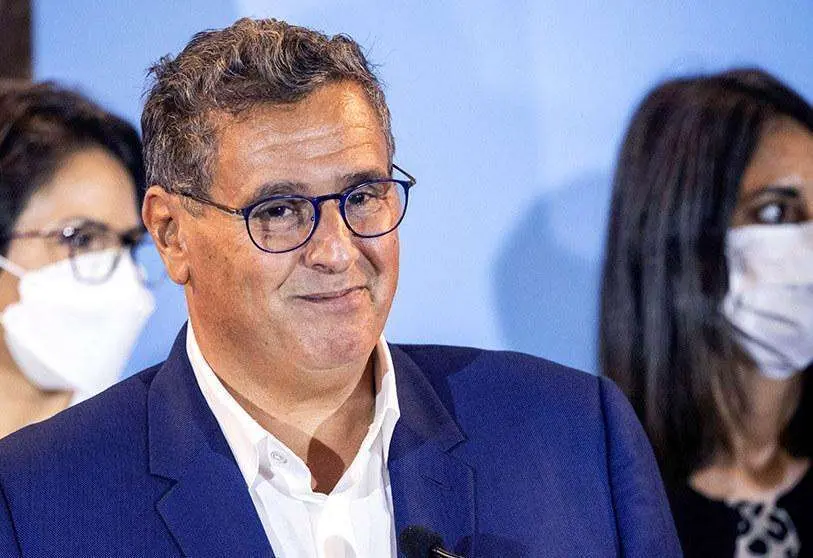Morocco will promote the use of Tamazight in the public administrations

The Moroccan government led by Aziz Akhannouch has announced new projects aimed at encouraging and promoting the use of Tamazight (Berber language) in public administrations, which will facilitate bureaucratic procedures and formalities for the Amazigh people in Morocco, since many, especially the elderly, are not fluent in Arabic.
Likewise, according to the Moroccan government, these measures are aimed at "preserving and developing" this language, as well as integrating it into various sectors. Therefore, during the meeting where this project was announced, four collaboration agreements were signed between the Ministry of Digital Transition and Administrative Reform, the Ministry of Justice, the Ministry of Health and Social Protection, the Ministry of National Education, Primary Education and Sports, and the Ministry of Youth, Culture and Communication. These four portfolios are committed to promoting the integration of the Tamazight language within the institutions.
أشرفت اليوم بمدينة الخميسات، على الإطلاق الرسمي لإجراءات المخطط المندمج لتفعيل الطابع الرسمي للأمازيغية، تفعيلا للإرادة الملكية السامية. pic.twitter.com/BVHqLBSoS2
— رئيس الحكومة المغربية (@ChefGov_ma) January 10, 2023
The Minister for Digital Transition and Administrative Reform, Ghita Mezzour, indicated that these agreements aim to promote the use of this language in public administrations and in public life in order to "improve and diversify the channels of communication with the Amazigh people, which means promoting and valuing their cultural heritage". Mezzour stressed that the projects include measures and procedures that will enhance the use of Tamazight and facilitate the Amazigh people's access to public services. According to the Moroccan news agency MAP, several plans have been implemented to include the language in the health, justice, education, culture and communication sectors.
For the minister, this decision and the importance given by the different ministries show "the great importance that the government attaches to this issue". She also underlined the commitment of the members of the executive to activate the official status of Tamazight.
(3) التي ما فتئ صاحب الجلالة، الملك محمد السادس نصره الله، يوليها لكل ما يتصلُ بتفعيل الطابع الرسمي للغة الأمازيغية. وكذا تنزيلا للالتزامات العشرة المُدرجة في البرنامج الحكومي، وتحديدا فيما يهُم تفعيل الطابع الرسمي للأمازيغية وتعزيز مكانتها وأدوارها. pic.twitter.com/T0fXFY7RCE
— Ghita Mezzour - غيثة مزور (@MezzourGhita) January 10, 2023
For his part, Akhannouch - of Berber origin - pointed out that "the official recognition of Tamazight as an official language alongside Arabic was the result of the royal will". More than a decade ago, King Mohammed VI had already stated in an official speech that Tamazight was "an essential component of the national culture and heritage that marks all the features of Moroccan history and civilisation".
In this sense, he blamed the previous government led by the Islamist Justice and Development Party for hindering the officialisation of Tamazight. "The two previous governments are responsible for the long delay in issuing laws regulating the activation of the official character of the Amazigh language," he added. Amina Ben Cheij, adviser to the president of the government on Amazigh affairs, agrees, saying in an interview with EFE that the delay in promoting the Berber language is due to the fact that Islamists who were not in favour of the officialisation of Tamazight have governed for the last ten years.

The Prime Minister also stressed that the recognition of Tamazight "cannot be limited only to the cultural and linguistic sphere, but must participate in social and economic development".
For years, Morocco has focused on promoting the Berber language, an official language alongside Arabic. As early as 2016, for example, the authorities began to standardise Tamazight in official documents and banknotes. Last year, the Akhannouch government began advocating for the introduction of the language in public administrations and institutions such as the parliament.
Berber is a language spoken by millions of people in North Africa and the Sahel. According to official figures gathered by EFE, Berber is the mother tongue of a third of the Moroccan population.








